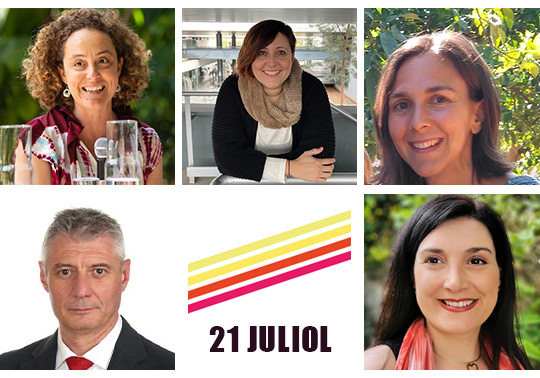
This seminar, organised by the Chair for Digital Gender Gap of the Universitat de València and Conselleria d'Innovació, Indústria, Comerç i Turisme (GVA), will be held on July 21st at the International Centre of Gandia, within the framework of the Universitat d'Estiu de Gandia (UEG). Registration is free of charge.
The UV-GVA Chair for Digital Gender Gap and the Summer University of Gandia (UEG) are organising a course on the impact of Information and Communication Technologies (ICT) in our society and their relationship with care tasks. This 5-hour seminar will be held on Thursday July 21st, from 10:45 to 18:00 h., at the International Centre of Gandia (C/ Tossal, 8. Gandia). Free registration can be done online: Free Registration
The seminar entitled "The ethics of care in the information age" is coordinated by Professor Anabel Forte Deltell (Department of Statistics and Operations Research of the UV), director of the Digital Gender Gap Chair UV-GVA. The 5 hours of the module will be taught by experts from the Universitat de València who will address the ethics of care from different disciplines. Thus, Silvia Rueda Pascual (Escola Tècnica Superior d'Enginyeria UV) will analyse the ethics of care from the perspective of software development. Victoria Vázquez Verdera (Department of Education Theory of the UV) will deal with the subject from the field of education. Ruth Mestre i Mestre (Department of Political Legal Philosophy of the UV), from the perspective of Law. José Antonio Álvarez-Jareño (Department of Economics at the UV) from the field of Economics. And Anabel Forte will offer the point of view of mathematics.
Closing the digital gap will not be possible if we do not change software development towards a person-centred model.
The course coordinator, Anabel Forte, explained that, in a world as computerised as ours, many of the tasks that we need to carry out in our daily lives, including personal care tasks or caring for others, are related to and dependent on Information and Communication Technologies (ICT). This situation has been accentuated after the Covid-19 crisis, as the negative consequences of the digital gap and the lack of access to ICTs have become even more evident.
In this context, this course aims to raise the need for a holistic social change that requires public and private entities to make better use of new technologies and to incorporate more Diversity, Equity and Inclusion (DIE&I) to ensure equitable access to ICTs.
"Closing the digital gap will not be possible unless we start to focus on all aspects of software development, putting people at the centre of the process. Even less so if we don't look at the process from all the perspectives involved," explains the director of the UV-GVA Chair for Digital Gender Gap. "Shifting software development towards a socially focused model will help shape the 2030 Agenda without leaving anyone behind, regardless of gender, age, or any other personal situation, in this increasingly digital world," says Anabel Forte.

.jpg)









